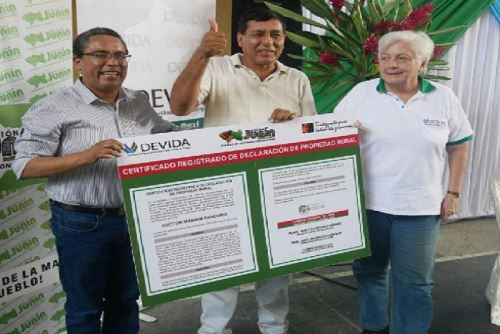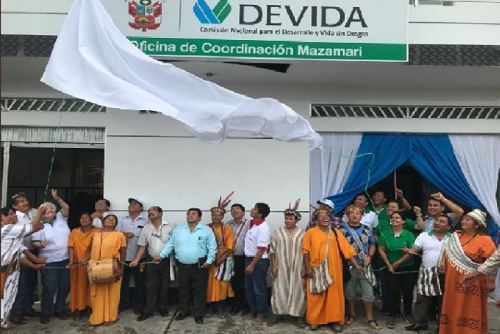In this sense, they will have access to credits, as well as to creating productive projects, thus improving their families' living conditions.
This is part of an interagency agreement signed by both institutions in 2015 to launch the "Rural Properties Formalization and Titling" in Satipo and Chanchamayo provinces, program whose implementation started in 2016.

The event saw the presence of
Devida's Head Carmen Masias, Junin Region Governor Angel Unchupaico, as well as Mayors Teodulo Santos (Satipo), Alejandro Egoavil (Coviriali), and Elvis Hinostroza (Rio Negro).
Granting these title deeds means allowing
farmers to become citizens, who rely on economic and social rights. Likewise, it denotes giving them —and their families— economic
development opportunities, said Masias.
Thanks to these title deeds, citizens residing in former coca-influence-areas will become land-owners.

As a result, they will be able to request credits from financial institutions, thus allowing farming families to move productive projects forward.
It will also enable them to have access to legal, safe, and sustainable development opportunities.
The trend to export agro-products —essentially coffee and cacao— is on the rise due to productive market's dynamism.
As is known, Devida is Peru's public agency in charge of designing and managing national anti-drug policies, engaging State bodies, civil society, and the international community.
(END) NDP/FGM/MVB